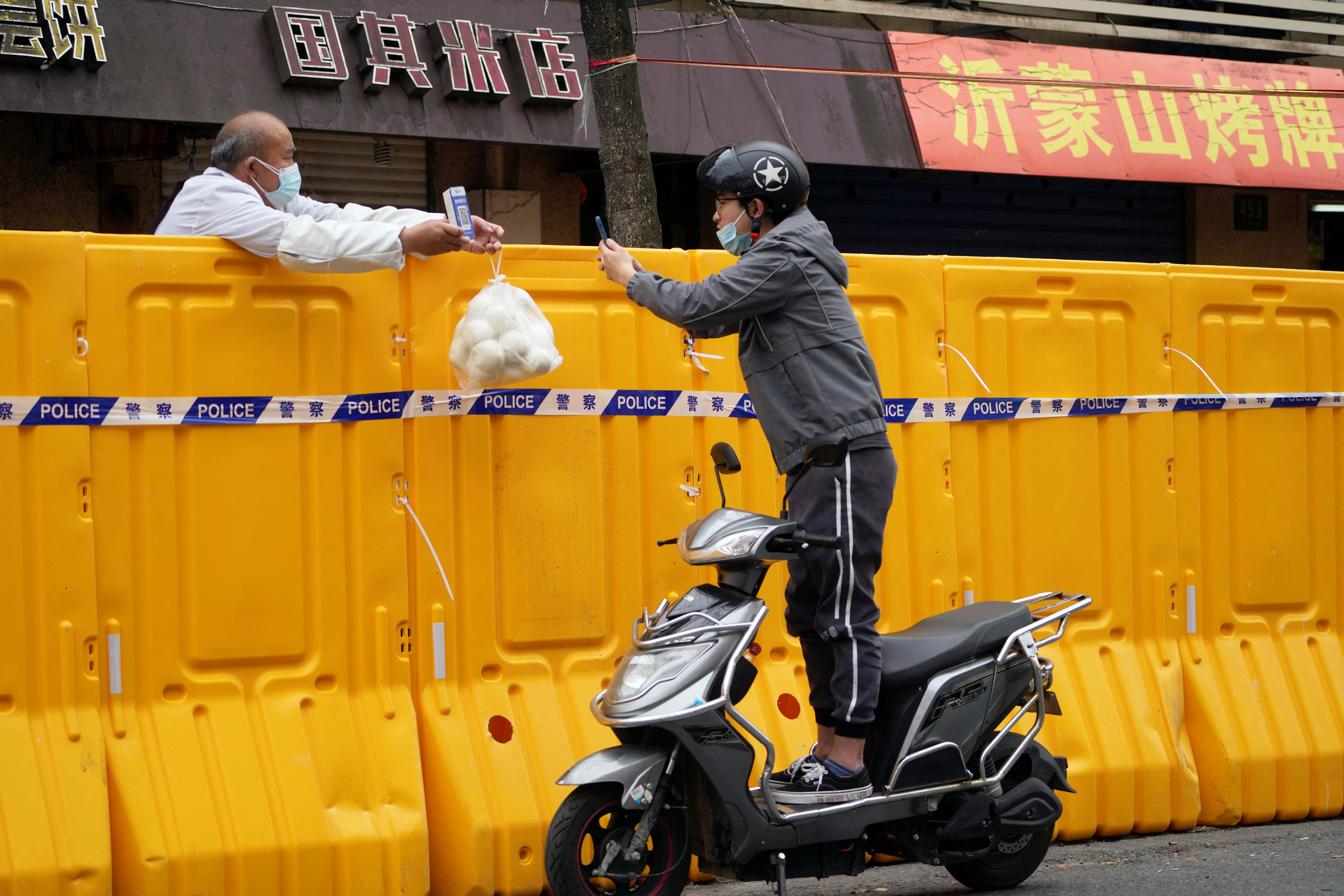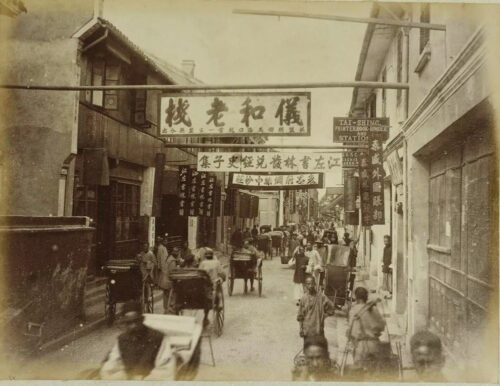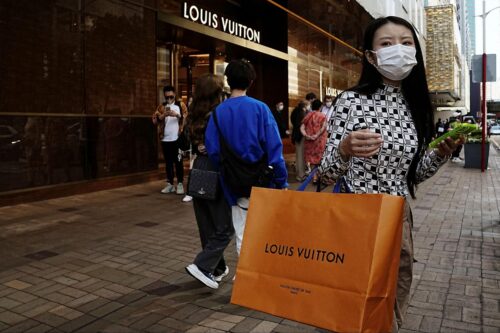Weibo removes hashtag about food shortages in Shanghai as locked-down residents go hungry
“If we can’t solve the problem, we need to solve the person who raised the problem,” said one cynical social media user as Weibo censored a popular hashtag about the ongoing crisis of people stuck in their apartments without enough food.

Despite Shanghai authorities’ assurances of providing necessities to the 26 million people confined to their homes, residents of China’s most-populous city have been struggling to keep hunger at bay under a strict COVID-19 lockdown that was originally meant to last only eight days but has been extended indefinitely.
For starved residents disappointed by the local government’s outbreak response, the Weibo hashtag “Buying groceries in Shanghai” #上海买菜# served an important emotional and practical purpose at a time of crisis: It allowed people to air their grievances — and to share tips for securing food and to call attention to those in urgent need of help.
Now, the acute problem of food shortages isn’t getting any better, but the hashtag has already been wiped from the Chinese internet.
On Friday, Weibo users noticed that the hashtag had suddenly become inaccessible. Currently, when you search Weibo for the hashtag, you are given a message saying that “no results can be found.”
The backlash was quick and intense, with many Weibo users decrying the decision as an attempt by the platform to silence negative comments about the situation in Shanghai, and possibly an indication of the Shanghai government’s unwillingness to address the hunger emergency. “Good news! The problem of #Buying groceries in Shanghai# has been completely solved,” a Weibo user wrote (in Chinese) in a viral post that has so far been shared more than 23,000 times and generated over 2,000 comments. “Who’s surprised that they would pull the classic “If we can’t solve the problem, we need to solve the person who raised the problem” tactic?,” one person commented, while another one quipped, “Is this an example of ‘China speed?’ I’m so impressed!”
Meanwhile, a flurry of alternatives emerged in response to the censorship, including the hashtags “Scrambling to secure food in Shanghai” #上海抢菜# and “Anxieties over food supplies in Shanghai” #上海疫情下的抢菜焦虑#.
Although it’s unclear whether the censorship was prompted by a government mandate, many believed that it was triggered by a directive (in Chinese) issued today by Shanghai’s internet watchdog, in which officials ordered social media and messaging platforms like Weibo to ramp up their efforts to curb the spread of “false and misleading information” about the ongoing outbreak in Shanghai. The Shanghai office of Cyberspace Administration of China, the central internet regulator, also urged social media users to “distinguish rumors from facts.”
A food emergency
Late last month, after a failed experiment to contain the ongoing outbreak through partial closures of housing compounds and workplaces where the virus was spreading, Shanghai — home to the world’s busiest port and China’s main stock exchange — entered a two-stage lockdown that later affected its entire population and brought the whole city to a standstill. Despite the severe measures, Shanghai’s cases continued to rise, with the city reporting 21,222 new infections on Friday, 824 of which were symptomatic.
In the past two weeks, with grocery stores shut and deliveries restricted, many Shanghai residents confined to their homes voiced their frustration over food scarcity. Much of it appeared to be caused by poor management by the authorities. Labor shortages rocked online grocery platforms such as Dingdong Maicai 叮咚买菜, which said that its delivery workers in Shanghai were trapped at home despite being COVID-free. A desire to keep Shanghai isolated created significant delays in food shipments, with some truck drivers avoiding trips to the city due to a two-week quarantine requirement.
The fear of running out of food is so real for many residents that it has become a norm for people in Shanghai to wake up at 6 in the morning to try placing orders on grocery shopping apps before everything sells out. Online, residents are swapping tips for how to make vegetables last longer and prepare food past its expiration date.
The city’s vice mayor Chén Tōng 陈通 on Thursday announced (in Chinese) a slew of measures to ensure swift distribution of food and essential goods, including a partial reopening of wholesome markets and permission to allow more couriers out of locked-down areas to perform last-mile deliveries.
On the same day, Meituan, operator of China’s largest on-demand service platform, launched “urgent deliveries,” or next-day group deliveries, while dispatching almost 1,000 extra workers to Shanghai to address what the company’s vice president Máo Fāng 毛方 called “a lack of sorting and distribution capacity.” The announcement was made at a media briefing hosted by the local government, where Mao also said that a fleet of self-driving vehicles would be deployed to help distribute daily supplies and that priority would be given to “closed residential compounds.”
But such initiatives have yet to solve the food shortages in Shanghai. And in light of the censorship on Weibo, many are worrying that local officials are more concerned about “losing face and looking bad” than feeding the people. “Did you hear the people’s cries for help? You must have, so you covered their eyes and ears,” a Weibo user wrote (in Chinese).






